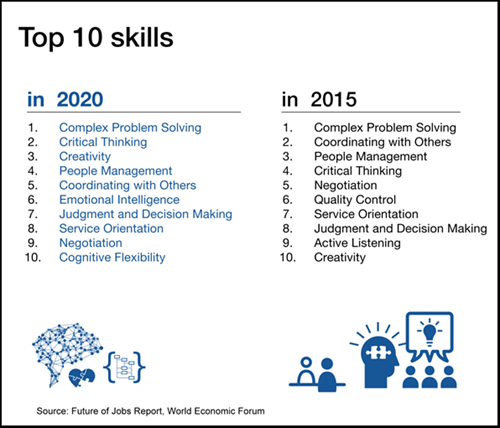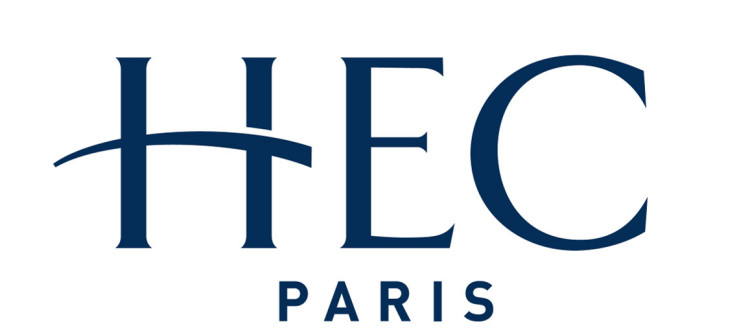- Managing people
The Changing Workplace
How generational change is changing the way we work – what leaders really need to know
By 2020, Generation Y or ‘Millennials’ (those born in the 1980s until mid-1990s) and Generation Z (those born from 1995 onwards) will comprise more than half of the workforce. They are digital natives, collaborative, adept at multitasking and their attitudes and expectations will have a major impact on the work environment as they are striving for greater autonomy and flexibility. They expect a genuinely agile work ecosystem, with good internet access, where they can work from basically anywhere – home, client’s office, co-working space, even from a holiday resort. This drive for flexibility will contribute to shifting the status of employees into more and more freelancing and it is expected that 40% of workers in the US will be freelancers by 2020. The movement towards freelancing is also linked with a strong desire to be able to balance professional and private lives (95% of Millennials according to a PwC survey).
The aspiration for personal development is a strong movement within these new generations. Surveys show that a lot of young employees today are motivated to leave their companies, because they feel they do not have enough opportunities to develop their expertise and soft skills within their companies. But it is not only about training. Millennials expect exciting personalized career plans with new fields to explore on a regular basis – much more often than the previous generations. Interestingly, 60% of Millennials surveyed by Deloitte think that 7 months of work means they are ‘loyal’.
In addition to annual progression, Millennials and Generation Z expect regular feedback, even on weekly basis. In order to make this possible, companies have to revise their annual appraisal interview frequency, with it now taking place every quarter or as an ongoing process. Not only do they want regular feedback, but 80% of those surveyed said they want to give performance appraisals to their manager. Also, as digital natives and being social media savvy, they strive for greater collaboration. The same study found that 80% of them said that their ‘team mates’ are the most important people at work. This will have a direct impact on hierarchy. Young, dynamic and agile start-up companies already have horizontal structures in place today and this is likely to be emphasized in future.
With the leaning towards flatter organizations, flexibility and autonomy, entrepreneurship has emerged as a desired career path for Millennials and those of the Generation Z. This is a huge trend not only in the developed but also in the developing world. In a Universum survey of 16,000 Millennials from 42 countries, 70% of respondents viewed themselves as entrepreneurs. In France, a study conducted by OpinionWay and published in February 2017 states that 60% of 18-29 years olds are ready to create their own company. As a result, training, mentorship, coaching and other ‘safety nets’ will be important to give them the tools for success.
There is also a clear shift towards meaningful work. Employees want to feel that they are doing something useful, that their work serves a clear purpose and that what they do produces visible results. For employee satisfaction, companies will have to link this with greater transparency, increased communication and sharing a clear vision - demanding increased leadership skills.
Finally, a strong employer brand is becoming more and more important. Social media already plays an important part in deciding whether to apply for a job or not. The Best Places to Work rankings are likely to increase in importance and workplace reviews will flourish. Glassdoor is a great example of the power shift that is slowly taking place in the digital landscape. This database of anonymously posted information reveals employer ratings, management practices, salaries and job interviews. Highly rated companies offer a great salary, benefits, mentorship, career advancement opportunities, good work-life balance and a culture that promotes employee engagement. LinkedIn has also launched a feature tackling salary transparency by showing how salaries for a given role vary by company, education level and geographical location.
Global comparisons will naturally lead to global talent pools. Talented people will become ‘global nomads’; they are likely to change country, continent and culture with remarkable ease. This will also be expected; 71% of the millennial generation says that they expect an overseas assignment during their career. From the employer perspective, fiercer global competition puts pressure on companies to find the right talent, wherever he/she may be located and companies will turn the world upside down for the right talent. That is, if they still decide to hire. Companies will increasingly connect to skills and resources on demand rather than owning them as a key part of their talent strategy. They will reach and use talent through online crowd sourcing and freelance platforms. This ‘just-in-time labor’ will help them remain competitive.
This will contribute to a more volatile and demanding workforce, with which future managers and executives will have to juggle. Because of the pressure from younger generations, companies will be forced to adapt. They will have no choice; otherwise they will lack the talent they need to win the battle for survival. As the degree of digitalization increases, the workplace will become even more agile. It will be common to manage virtual teams, connecting to work anytime, from anywhere and on any device. This will create new challenges for managers who will have to manage and keep a widely distributed workforce motivated, productive and satisfied. Organizational cultures will be harder to maintain. HR processes, compensation and training models will need revamping.

Different theories exist in terms of which trends will prevail in future, but I believe the world will be divided in two: fragmented and branded. Half of the global companies will be small, agile, relying heavily on suppliers and a contingent global workforce (the ‘New Economy’) working in a spirit of collaboration. The other half will be the Corporate world, where big companies with strong brands invest heavily on talent management, training and employee satisfaction to counterbalance the pressure and the hectic pace of work. In both cases, global leaders will need to be able to operate in a world with multiple stakeholders, different values and diverse attitudes, all in an increasingly volatile economic context. In addition, they will have to be comfortable with data and analytics, harness new technologies and drive innovation and change management. This type of leader will also need to be able to develop and nurture high potentials and future leaders with the right skills and adaptability to match the organizational needs in the ever-changing work environment. Clearly, the global managers of tomorrow will need to review and reinforce their skill set!
According to annual Global CEO Survey from PwC, the following skills are needed for tomorrow’s leaders to succeed:
- An ability to see around corners- Identify trends early and stay ahead of the fast-moving competitive landscape.
- Tolerance for ambiguity– Tomorrow’s leaders need a constant readiness for changing business dynamics and an ability to work towards unclear goals and outcomes.
- Agility in decision-making– Be flexible-minded and a curious life-long learner who is open to testing and measuring new ways of doing things.
- Adaptability in execution– Drive nearly constant renewal inside their organization.
- At ease with technology– Embrace technology both as an accelerator of change, and as the key tool to remain agile, to adapt to changing circumstances, and to stay close to consumers and influencers.
- Surrounded by a great team– Attract great people and cultivate a positive culture with a happy workforce, centered around trust with staff, to compete in the marketplace.
- Humility–Maintain a modest opinion of your own importance and be open to listening and learning from all that’s happening in the global environment.
There are a great number of other hard and soft skills required from a global leader, such as financial analysis and budgeting, data and analytics, risk management and control, contract negotiation, customer service metrics and new business development. Further on the softer side we can add handling diversity, conflict management, ability to solve problems, team spirit building, communication, persuasion and delegation skills, diplomacy, leading by example, bird’s eye view, change management, public speaking...
How can the manager of tomorrow learn all these skills?
The motto of HEC Paris is ‘The more you know, the more you dare’. Our Executive MBA program is providing talented and selected professionals with knowledge, skills and an outstanding understanding of the current business world, preparing them for unlimited career opportunities in complex international environments.
ARTICLES YOU MIGHT LIKE
RESEARCH
Harvard and BC University study values conversational receptiveness in our polarized times
DEVELOPING LEADERS QUARTERLY MAGAZINE AND WEEKLY BRIEFING EMAILS

































